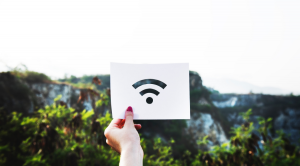Difference between firewall and VPN
What is a firewall?
Firewalls monitor and control data flow, deciding what is allowed to pass through and what is blocked. They analyze data packets based on previously defined rules, filtering out malicious content such as malware and hacking attempts. Their settings can also be adjusted to block traffic from specific locations, applications or ports.
Most large organizations often use firewalls to protect their networks. This firewall not only stops viruses but also prevents unauthorized people from accessing the system without the proper credentials. Additionally, organizations frequently configure firewalls to block access to popular websites such as social media platforms, keeping employees focused on work. However, individuals can also take advantage of firewalls by tweaking them to block traffic that may not be safe for them.
There are several types of firewalls and they vary in complexity:
1.Stateless packet filtering firewalls are basic firewalls, they only check IP addresses and ports, rejecting addresses that are not authorized by the administrator. This type of firewall is not popular due to its lack of functionality and flexibility in modern environments.
2.Conversely, stateful firewalls use a lot of information about data packets to decide whether to allow or deny them. They analyze the state and context of active network connections, providing greater manageability.
3.Proxy firewalls, another type, offer the most features and customizations. They act as gateways between devices on the local network and servers on the internet, providing a high level of control and security in traffic management.
How do firewalls work?
Any data that tries to reach your network, from emails to downloads and website information, is transmitted as data packets. Firewalls work by examining each data packet based on previously defined rules such as origin, destination, type, IP address, port number, delivery method, and many other factors. Based on these rules, the firewall determines whether the data packet is allowed or blocked. This continuous monitoring plays an important role in protecting your computer and network from online threats.
Although firewalls can control both inbound and outbound traffic, sometimes they are not configured to block outbound traffic. However, blocking outgoing traffic can be useful to minimize the risk that attackers can pose if they get into your system.
There are two main options for users who want to deploy a firewall: hardware firewall or software firewall.
What is VPN?
A VPN creates an encrypted tunnel to protect your Internet traffic and maintain a high level of privacy. When you connect via VPN, it establishes a secure link between your device and the internet, making transmitted data unreadable to any third party, including the service provider. internet or your network administrator. Even if your information was stolen during transmission, decrypting it would take hundreds of years.
Additionally, VPNs change your real IP address with that of the VPN server. This enhances anonymity when you browse the web and masks your location, as IP addresses are often an indicator of a user's location. Changing your IP address also helps you access content that is censored in your country or in schools or offices where you may be blocked.
In an ideal situation, a VPN never reveals your real IP address. To ensure strong security, reputable VPN companies like VPN Rice don't even log any of your VPN connections or activity, keeping your personal information protected, even when face legal pressure.
How does VPN work?
VPNs are typically deployed as apps on phones or personal computers, although there is the ability to use VPNs on any internet-connected device. Simply turning on the VPN in the app is enough to protect your data, as it is then encrypted into a code that can only be decrypted by the person or website you are interacting with. All the information you send or receive, from web browsing to email to video streaming, is protected with encryption.
Once encrypted, your data goes through a secure tunnel to the VPN server. This server acts as a digital intermediary. Instead of displaying your real IP address, the VPN uses a private IP address, which masks your location and makes your online activity difficult to trace. follow more.
When the data reaches its destination, the VPN server decrypts it, and the data is delivered to the final destination as if it were sent directly from your device. This helps ensure the safety and security of your personal information during transmission over the network.
When to use a VPN versus a firewall
Use a VPN if… secure data transmission and access to information are paramount.
Choosing to use a firewall is necessary when you want to ensure the safety of your home or office network against unauthorized access. On your personal computer, firewall protection is usually already built in, unless you happen to turn it off. This provides a basic level of protection, but it is rare for someone to have a high-end hardware firewall or software firewall for personal use. Therefore, having a standalone firewall is often a carefully considered decision, especially in an organizational and enterprise context.
How do I know if a firewall is blocking my VPN?
1.Connection failure can be encountered in cases where the VPN refuses to connect on a particular network, while working fine on other networks. If you keep getting errors when trying to establish a connection, your firewall may be the main cause.
2.Decreased internet speed can be a sign that the VPN is affecting the speed, but if performance drops significantly after trying to connect through the VPN, it can be a clear sign that the firewall is manipulating throttle or block some traffic.
3.Error messages from the firewall can also provide important information about the status of the VPN connection. Some firewalls will display a specific error message related to blocking VPN connections. Check the firewall logs or notification area to detect any notable messages during the time you were making the VPN connection.
4.If you want to dig deeper, you can directly check your firewall configuration. Look for rules that block VPN applications or specific ports and protocols commonly used by VPNs to ensure that the firewall doesn't interfere with your VPN connection.
How to bypass VPN blocking firewalls?
1.Switching to data usage can be a solution when you face firewalls. For example, if you're tethering your phone to your company's Wi-Fi, instead of trying to bypass the firewall, you can easily switch to using your phone's data plan to avoid interference from your company. firewall.
2.Changing the VPN protocol and port is also another way to bypass the firewall. Most VPNs offer a variety of protocols and ports for you to experiment with. You can switch to protocols like OpenVPN (TCP/UDP), IKEv2 or WireGuard, along with using popular ports like 443 (HTTPS) or 80 (HTTP) – these ports are generally less blocked.
3.Using cloaking techniques is also an option. Some VPNs have features that help disguise VPN traffic as normal Internet traffic, making detection and blocking by firewalls more difficult. Explore cloaking options in VPN settings to optimize safety.
4.Shadowsocks and SSH tunnels are two other methods to bypass firewalls. Shadowsocks is a secure socks5 proxy protocol that routes traffic through an intermediary server, helping to bypass firewall restrictions. Additionally, setting up an SSH tunnel can also be used to encrypt and route traffic through another server.










